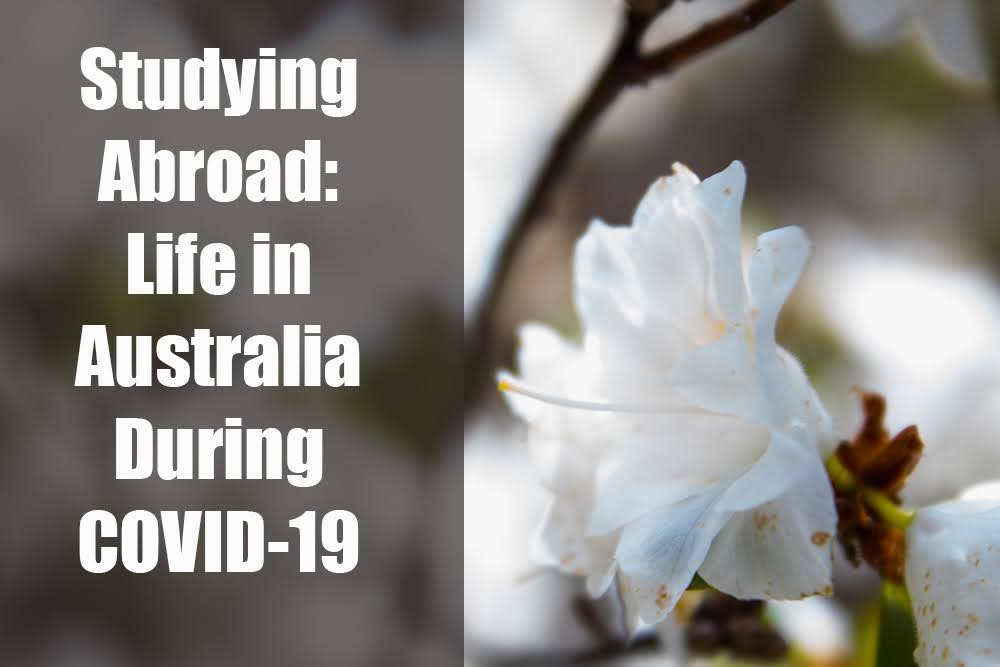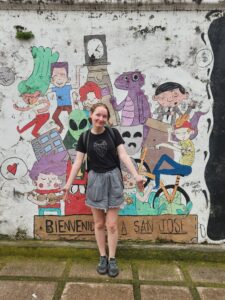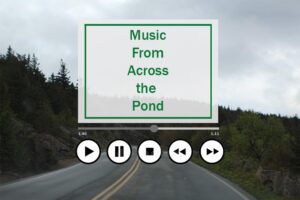On the complete opposite side of the globe, hailing from the far away land of Australia, my friend Darcy Castaldi lives a life not so different from our own. He was in the middle of a tour across Europe with his friend when I first crossed paths with the two in a bar while abroad in Torino, Italy last spring. After months of staying in touch only through Instagram updates, I caught up with him over Zoom to discuss his life in Australia.
Q: Where are you from, where do you go to school and what are you studying?
A: I live in Newcastle, Australia. I study mechanical engineering at the University of Sydney and work down there with an art advisor. I also work in Singleton in a coal mine as a mechanical engineer.
Q: Are you currently remote for school?
A: Sort of. All lectures are online but classes have slowly started returning to campus. It really just depends on the subject. Our university system heavily relies on fees from international students because domestic students have a fixed public rate. The university can charge like a certain amount per year and it’s the same price at every university in Australia. Whereas for international students, they can charge however much they want. So the gist is that they have laid off a lot of staff and now don’t have the teachers for students, [so online is a better option].
Q: How is life in Australia different from other countries?
A: Australians actually are pretty relaxed in general. I think our jovial spirit for some of the population actually makes us quite fun people to be around. Of course, I am generalizing, but this is for my friends and peers at least. Australia also follows America, I wouldn’t say closely, but we look to you guys a lot for pop culture still.
Q: How has the pandemic affected life in Australia? How has your country dealt with it?
A: So it really has been dealt with state by state. However, every state has the goal of eradication, so it has been good. Different governments around the country have dealt with it in different ways, which has been interesting because we are constantly comparing ourselves to each other.
Our state, New South Wales, is the biggest and has done remarkably well. We have had lockdowns, but they really are area focussed now — [meaning, if] there is an outbreak, they will target that suburb and do a lockdown for two weeks. However, this hasn’t happened for months. We really are very lucky. But also we live on a bloody island so it shouldn’t be too hard. We also have an epic public health system that is so well equipped to cope with big populations of patients.
Q: What are some misconceptions people have about Australia and Australians?
A: That we are stupid or uneducated and “bogan” [uncultured or unsophisticated]. Yeah some of us like myself might be classified as slightly bogan, but in all honesty, we have an amazing education system here in Australia and really are progressive in terms of rights and freedom.
Q: Can you give some examples of some Australian slang?
A: “Mate” is actually used a lot. Also, swearing is really common depending on where you are around the country. If you go slightly into the country, everyone is just f— this and f— that, but not in an angry way at all. We also shorten everything. Afternoon is “arvo” and we always take the “ing” and “ly” off words.
Q: What kind of activities do you do in your free time?
A: Surfing, sailing [and] camping — I love being outside.
Q: Why is surfing so important to you?
A: It really teaches you that you are part of the bigger picture, you know. I know it sounds super cliche but it’s true. I really can’t understate how good it makes me feel just doing something and forgetting about your immediate stressors in life. I also love boards, particularly older boards, and the style that comes with that. It is cliche, but the lifestyle of starting your day with the water and like mentally washing yourself is just something else. I also love the community of surfers, especially the seadogs — these are the older blokes. Everyone has this appreciation and respect for the bigger picture of life without ever actually saying it.
Q: What kind of role do you see surfing playing in your life as you move forward into a professional career?
A: It will play a critical role in helping me realize that I need some form of connection to the natural world. Surfing is just one of those means. I also love the bush and being in the trees and the desert. As long as I can be in nature, you know, every day and be satisfied with my career, I will feel satisfied.
Q: What was the motivation for your European trip and where did you end up going?
A: We went to Spain, France and Italy. My family’s heritage is actually Maltese, so I have wanted to go to Europe my whole childhood. I also loved the idea of European culture and once I got there I loved it even more. They do enjoy the little things in life I think. Especially the Italians.
Q: How did COVID-19 impact your European trip last spring?
A: Literally not at all. We got back just before anything happened; we were so lucky. We were in China seven weeks before Singapore declared that if you have been in China in the last six weeks you’re not allowed in, and we needed to go through Singapore to get home.
Q: Why do you think it is important for a young person to travel?
A: You need to be exposed to different ideas and cultures if you hope to have any chance of truly understanding other people’s issues. Travelling has taught me I am part of something bigger. I think that being humbled is critical to human adult development.








